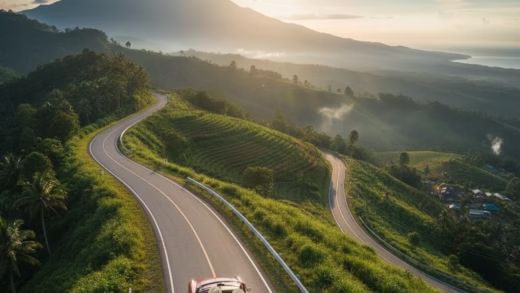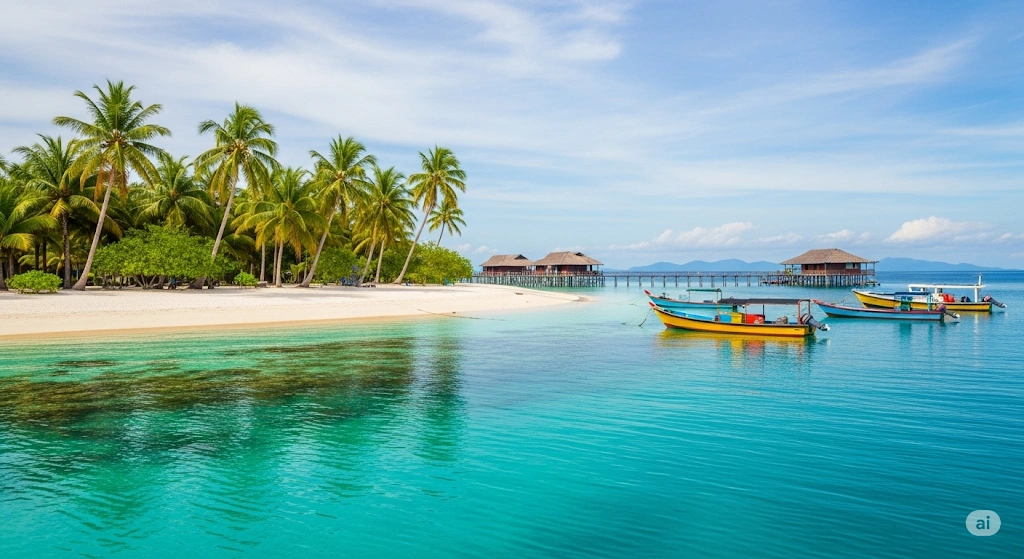What It’s Like Celebrating Hari Raya in a Traditional Malay Village
When it comes to Hari Raya Aidilfitri (also known as Eid al-Fitr), no celebration is more heartfelt, communal, and culturally rich than one spent in a traditional Malay kampung (village). Far from the bright lights of the city, the kampung offers an immersive, nostalgic, and spiritually rewarding experience of Raya that urban dwellers often yearn for. Here’s what it’s really like to celebrate Hari Raya in a traditional Malay village.
1. Balik Kampung – The Great Homecoming
Weeks before Raya, highways swell with cars in a ritual known as balik kampung—where city folk return to their hometowns to reunite with family. This journey is emotional and symbolic, representing a return to roots, values, and tradition.
You’ll find entire families packing gifts, baju kurung and baju Melayu, and tubs of kuih Raya, making their way to rural villages, often nestled amid paddy fields, coconut trees, or forested hills.
2. Gotong-Royong Spirit: Preparing as a Community
In the kampung, preparations are a communal affair. Neighbours come together to clean the mosque, hang up decorative lights (pelita), and even help repaint houses.
One of the most anticipated pre-Raya activities is gotong-royong—a collective spirit of cooperation. Whether it’s preparing ingredients for rendang, building bamboo pelita lamps, or cooking ketupat over an open fire, it’s all about unity.
3. Takbir Malam Raya Echoes Through the Village
As the sun sets on the last day of Ramadan, the air is filled with the melodic echoes of takbir, called out in unison from the village mosque. Some villagers take part in takbir keliling, going house to house with drums and chants, announcing the arrival of Eid.
It’s a moving and spiritual moment that marks the start of the celebration—and it feels especially powerful in the quiet serenity of a kampung night.
4. Hari Raya Morning: A Blend of Spirituality & Style
On the morning of Raya, villagers don traditional attire—vibrant baju kurung, baju Melayu, and songket. Families walk together to the village mosque for Solat Aidilfitri, followed by forgiveness rituals (salam-salaman), where younger family members ask forgiveness from elders in a deeply emotional exchange.
5. Feasting the Kampung Way
Nothing compares to a kampung Raya spread. You’ll likely feast on:
- Rendang Tok (rich Perak-style beef rendang)
- Lemang (glutinous rice cooked in bamboo)
- Ketupat palas (sticky rice wrapped in palm leaves)
- Sambal goreng, ayam masak merah, and serunding
Everything is home-cooked in large batches over wood fire—prepared with love and perfected through generations.
6. Rumah Terbuka – Open House in True Kampung Style
In the kampung, every house becomes an open house. There’s no need for invites—everyone is welcome. Neighbours and distant relatives drop by for food, laughter, and heartfelt conversations. The sense of community is unlike anywhere else.
Children run from house to house collecting duit Raya, while elders catch up under the shade of mango trees or verandahs.
7. Kampung Games and Traditions
After meals, the day transitions into games and laughter. Children play batu seremban, congkak, or meriam buluh (bamboo cannon, under adult supervision!). Firecrackers light up the evening skies as traditional Malay music plays on the radio.
8. More Than a Celebration – A Cultural Homecoming
Celebrating Hari Raya in a traditional Malay village is more than a festive event—it’s a deep cultural and spiritual homecoming. It connects people to their ancestry, strengthens family ties, and reminds everyone of the importance of humility, gratitude, and togetherness.
Final Thoughts
In a world increasingly dominated by fast-paced city life, the kampung Hari Raya offers something that can’t be bought—a heartfelt celebration rooted in community, culture, and connection. Whether you’re Malay or simply a curious traveller, experiencing Hari Raya in a traditional village is an unforgettable way to witness the true soul of Malaysia.













Comments are closed.